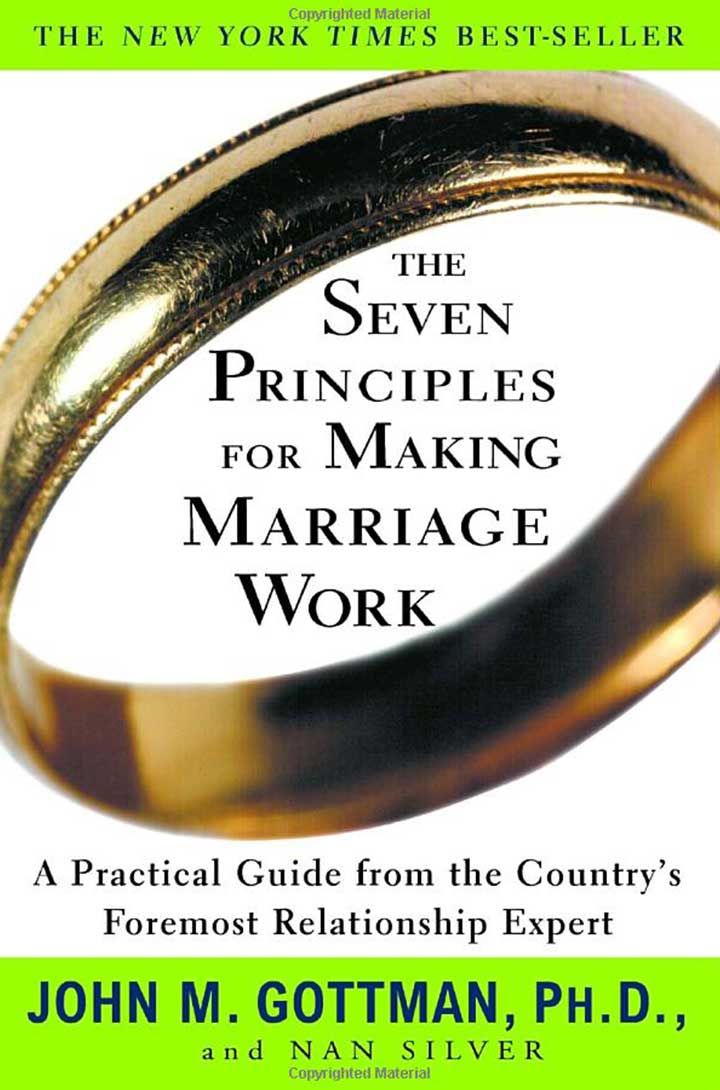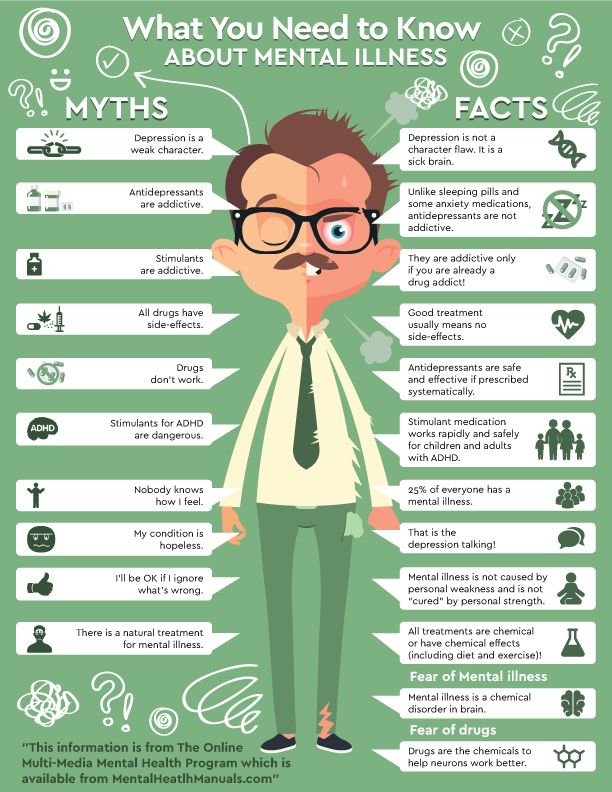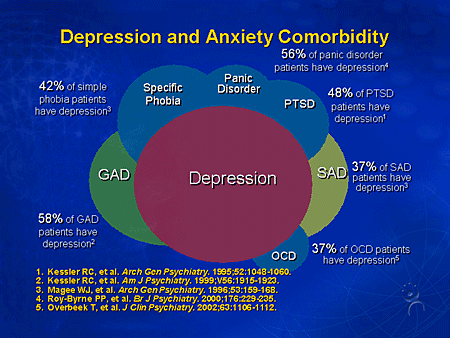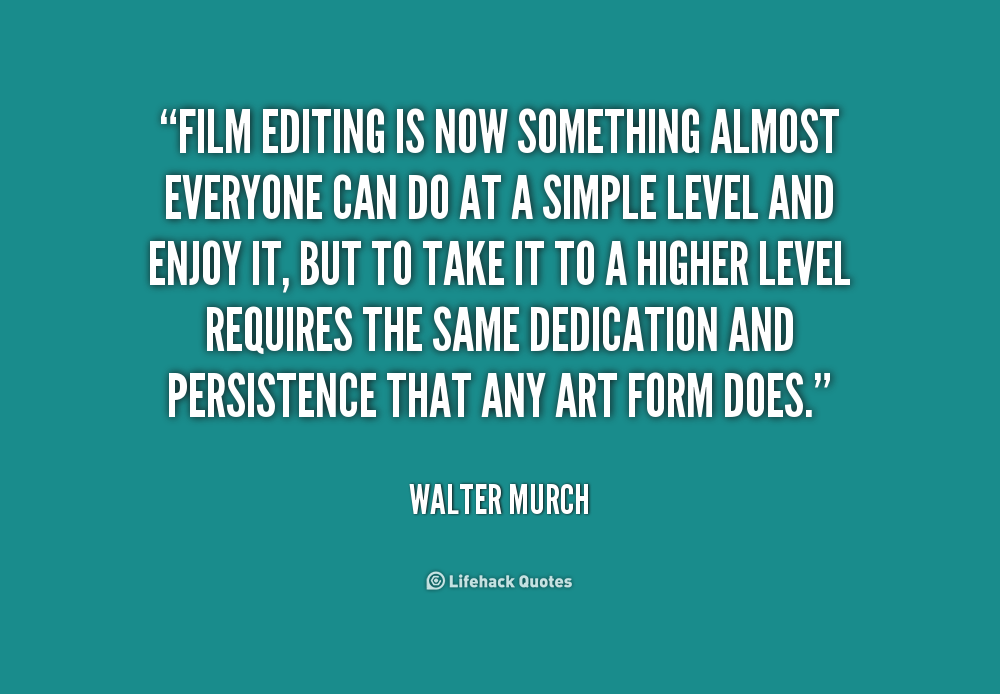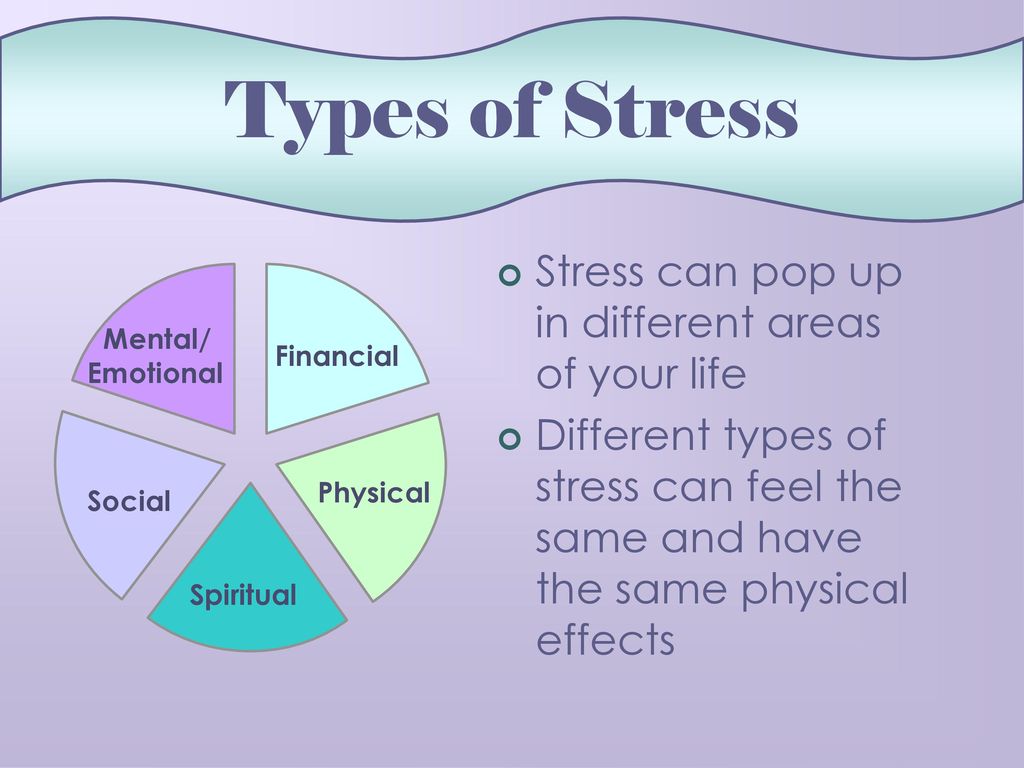Making a marriage work
7 Research-Based Principles for Making Marriage Work
Marriage comes with its ups and downs, but these seven principles may help you create a healthier relationship with your spouse.
Share on PinterestAny couple can walk out “The Seven Principles for Making Marriage Work.”They say there’s no roadmap for the most difficult endeavors in life, but four decades of marriage scientific research and real-time lab observations compiled in one book come as close as folks might get to a marriage guidebook.
Dr. John Gottman and Nan Silver, in their book “The Seven Principles of Making Marriage Work,” combine research and practical applications for creating long lasting, fulfilling relationships.
Their principles stem from years of longitudinal studies on couples. Applying their principles takes practice but can be pivotal to creating a healthy partnership.
Gottman states that emotionally intelligent couples are familiar with their partners’ love maps.
Enhancing your love maps is about being familiar with your partner’s world — understanding their lived experience, knowing their love language, and remembering their life changing events.
Mutual understanding of each other’s worlds can arouse care for each other and increase connection.
Enriching your love maps involves a deep comprehension of what makes your partner your partner. Some questions you may think about or try to answer about your partner include:
- What are their top three favorite songs and why?
- What is their biggest fear?
- What are some dreams they have for the future?
- What stresses them out?
- What are some of the major events that have occurred in their life?
These example questions can give you an idea of how familiar you are with your partner’s love map. If you notice this is an area lacking, it doesn’t necessarily mean your marriage is doomed to fail. Enhancing your love map through honest discussion is possible.
Fondness and admiration in marriage demonstrate affinity for your partner, based on an inner belief that they’re worthy of respect.
Gottman and Silver explain that the marriage may no longer be salvageable when fondness and admiration are lacking.
Gottman suggests that a good way of evaluating whether you have admiration and fondness for your marriage is to recount the story of your first meeting and courtship.
His older research found that the way couples recount their relationship origins story predicted divorce or marital stability with a 94% accuracy.
Nurturing your relationship may look like this:
- planning date nights together
- trying a new hobby or activity together
- expressing appreciation for your spouse
- complimenting your partner
If nurturing fondness toward your spouse isn’t a priority, you may consider seeking couples therapy.
In a healthy relationship, partners make bids for each other’s attention.
If you tell your partner, “I’m having a bad day at work,” and your partner replies, “I don’t have time to talk right now,” this is turning awayfrom each other.
When your partner bids for your attention and you take the time to be present, listen, and support them, you’re turning towardeach other.
“Turning toward is the basis of emotional connection, romance, passion, and a good sex life.”
– John Gottman, “The Seven Principles of Making Marriage Work”
Choosing to turn toward each other helps fill each other’s “love tank,” as longtime marriage counselor Gary Chapman says in his book “The Five Love Languages.”
Then, when times get hard, that full tank can come in handy and help you drive through the challenge productively and lovingly.
Couples are more likely to stay together when they work as a team.
When one person has all the power in a relationship, it creates a hierarchal difference. When you turn toward each other when making big decisions, sharing opinions, or involving your spouse in your thought process, you allow them to influence you.
Letting your partner influence you isn’t the same as allowing someone else to control you. It’s more about communicating and involving your significant other in decisions.
Even if you disagree, there are still ways to have calm, rational discussions that show respect toward your significant other.
There are two types of problems that can occur in a marriage: perpetual and solvable.
Perpetual problems usually are complex and may result in communication gridlock.
But just because you have recurring issues with your spouse doesn’t mean you can’t have a thriving marriage.
Solvable problems are usually more straightforward. With solvable issues, you can directly tackle the problem and find a solution. There isn’t typically underlying conflict or resentment with solvable issues, only the challenge at hand.
Gottman suggests five steps for tackling solvable problems:
- Soften your startup. If you approach the problem from a calm, respectful place allows you both to feel heard.
- Learn to create and receive repair attempts. Repair attempts are actions or statements to keep conflict from escalating.
 They can involve levity, humor, an inside joke, or a special code.
They can involve levity, humor, an inside joke, or a special code. - Soothe yourself and each other. Taking a 20-minute break, calming down, and soothing your partner can be an effective problem-solving strategy.
- Compromise. Finding a solution that you can both live with may help establish healthy conflict resolution.
- Be tolerant of each others’ faults. Understanding your partner is human and accepting their flaws helps create an attitude where calm negotiation can occur.
Gridlock occurs when persistent disagreements cause conflict. For example, you’re gridlocked with your spouse when ongoing problems lead to a lack of productive conversation. Perhaps you both can’t seem to agree to disagree.
Overcoming gridlock is not about solving the problem but having a healthy conversation about the situation. But first, you have to understand what’s causing the problem. Gottman believes that unrealized dreams create gridlock.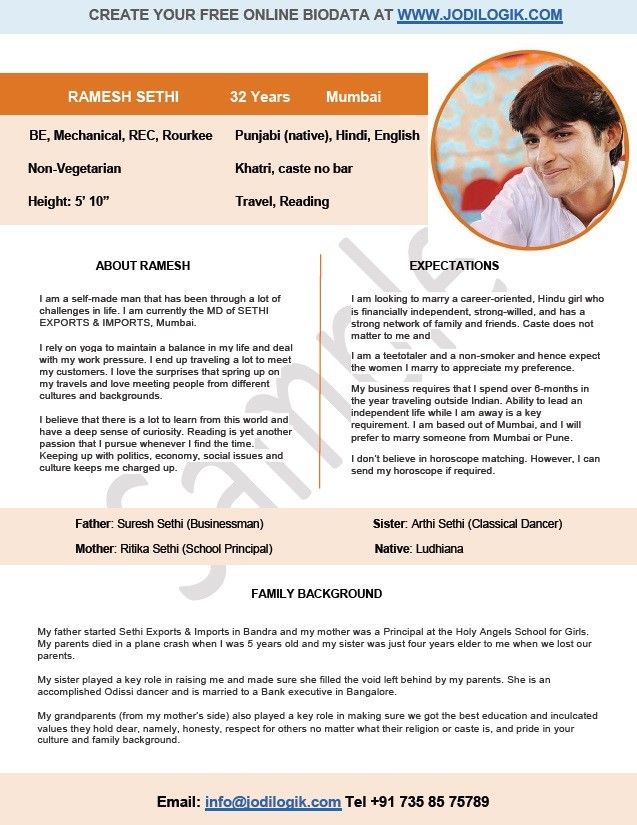
To overcome gridlock, here are some steps you can take:
- try to understand the root of the issue
- communicate calmly
- find a way to assess your nonnegotiable and flexible areas of the conflict
- end the discussion on a calm note, expressing thanks and appreciation for your partner
Research from 2017 by Gottman suggests that happy couples who stay together can move from gridlock to dialogue about their perpetual problems.
This happens when you accept your partner and understand their unconscious dreams or agendas.
Creating shared meaning involves fusing your goals, roles, and rituals. You can find fulfillment in sharing purpose by allowing yourself and your partner to have their needs, wants, and dreams recognized.
You can create meaningful experiences when you share and explore all types of intimacy.
For example, some couples may experience shared meaning if one partner plans their mate’s ideal birthday celebration. Sharing purpose with your partner may help you feel closer.
Sharing purpose with your partner may help you feel closer.
Using the seven principles crafted by Gottman and Silver in their book “The Seven Principles of Making Marriage Work” as a guide for marriage can help you create a stronger connection.
Each of the principles builds upon one another and is interrelated. As you lay the foundation for healthier patterns in earlier principles, the latter principles become easier to apply.
Putting in the work to connect, communicate, and respect each other, is worth the work for a happy marriage.
7 Important Principles of Marriage
Whether you are about to get married or are looking to improve your existing marriage, you need to acknowledge the principles of marriage that make it last. Getting these right will set you on the right track.
Marriage principles can guide couples to establish a good foundation for their marriage. And these can help you get through tough times as a couple.
You probably already know that marriage is indeed hard work if you are already married. And as a couple who is new to marriage, you may want to
And as a couple who is new to marriage, you may want to
Here are 7 principles of making marriage work that you must always hold on to for making things work
Principles of a good marriageAmerican Psychologist Dr. John Gottman, in his book ‘The Seven Principles for Making Marriage Work,’ explains the foundational rules that can guide and enhance the companionship offered within marriage.
Gottman talks about the importance of allowing yourself to grow your fondness for your partner and getting influenced by their traits. It builds a healthy and familiar bond, which is important for surviving any marriage.
Furthermore, solving the big and small problems in marriage and depending on each other even during problems are part of the seven principles of making marriage work. They help deal with the inevitable obstacles that will come up in marriage.
Marriage requires work and it can often be confusing to understand what helps in making a marriage work. However, by following the important principles of marriage explained below, you can enhance the state of your marriage.
However, by following the important principles of marriage explained below, you can enhance the state of your marriage.
Related Reading: Principles of a Happy Romantic MarriageKey principles of marriage
Marriage principles help by making marriage simple to understand and uphold. They give some basic guidelines to maintain a healthy equation with your spouse and ensure marital bliss.
Making a marriage work requires commitment and a desire to improve things between you and your partner. The principles of marriage mentioned below can act as your marriage building worksheets to look at and evaluate your relationship.
1.
CommunicateFor any two people in a relationship, the importance of healthy communication cannot be stressed enough. It is often improper communication or the lack of proper conversation that ruins relationships.
The simple yet extremely powerful act of communicating properly can do wonders for your relationship and that’s why it is one of the key principles of marriage. Often, people tend to ignore the issues at hand by not discussing them.
Often, people tend to ignore the issues at hand by not discussing them.
Such behavior will temporarily make things seem better, only for them to worsen later. It is usually advisable to resolve issues before they blow out of proportion.
To improve communication with your partner it is also important to realize what sorts of behavior lead to open communication.
To do this, make a list of dos and don’ts. After that, make sure you do the things that will help your partner open up to you.
Related Reading: 16 Principles for Effective Communication in Marriage2. Give each other space
The idea of giving each other space in a relationship may seem weird to many people. But, for several people, personal space is extremely important and therefore it is something they can not ever compromise upon.
Personal space is actually not a bad thing. And you should not take it to heart if your partner asks for it. It is their right too, just like everybody else’s.
Giving your partner a little time away from yourself will prove to be great for your relationship too. It will help you and your partner relax and give the two of you time to miss each other.
To practice this, plan a day out for yourself and tell your partner to go out with their friends. You’ll be amazed to see the energy they return with and that’s why giving space is one of the important principles of marriage.
Related Reading: Let There Be Some Space in Your Relationship3. Build trust
Trust should perhaps be the basis of every relationship in your life and most importantly, marital relationships. Many people believe that without trust, relationships have no reason to continue.
Rightly so, trust is a critical pillar that can make or break bonds. Trust is usually built over time and can be broken in seconds. Therefore, it is regarded as one of the key principles of marriage that make it last.
It is essential that you and your partner discuss the boundaries of the relationship to understand what is and isn’t off-limits.
Once the two of you are on the same page, it becomes easier to determine how to behave.
Related Reading: Setting Healthy Boundaries in a Relationship4. Mutual respect
Respecting your partner is absolutely necessary and that’s why it is one of the important principles of marriage. Lack of mutual respect can lead to troubled relationships that may eventually end painfully.
Respect is the fundamental right of every individual. Therefore in any marriage, partners should make sure they give each other this fundamental right. Often, because of mutual respect, many partners can check how they behave during arguments.
If either you or your partner disrespects the other, it can worsen every disagreement. It can lead to resentment and negativity festering within the marriage.
5. Spend quality time with each otherSee how we wrote quality time and not just time?
A meaningful chat over a cup of tea will do you and your relationship more good than the hour you spent watching the news on the television with your spouse, without making any conversation.
Taking out time for your relationship is just as important as taking out time for yourself. When you give someone part of your time, it shows that you value and care for your spouse. That’s why you should treat this as one of the 7 principles of marriage.
Research shows that quality time with your spouse positively affects the relationship and individual stress levels. So, every day when you come back from work, try to sit down with your spouse to talk about the day’s events instead of scrolling through your phone.
This small practice will help you connect with your partner and make them feel valued.
Related Reading: 11 Ways to Have Quality Time With Your Partner6. Love
Love is probably the main reason people decide that they want to get married in the first place. That is why it is a significant part of the seven principles of making marriage work.
Love makes people do unusual stuff and it is love that makes people want to stay together irrespective of any differences they might have.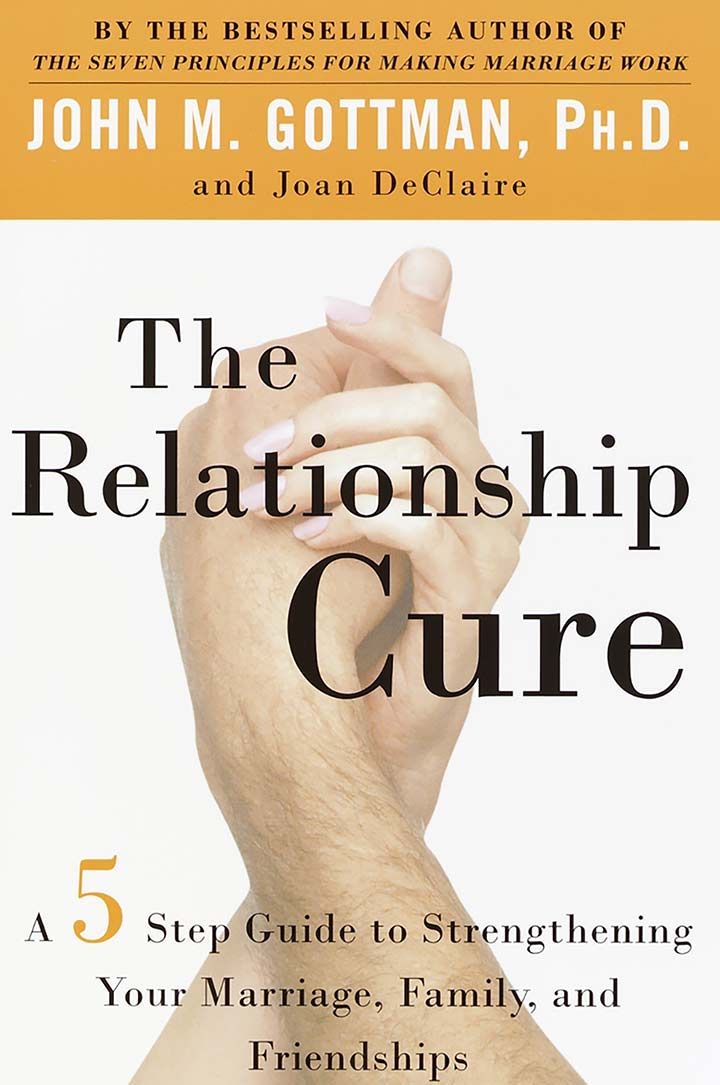
However, love can fade with time like everything else in the world, so you must keep working to keep the spark alive. Complacency and taking things for granted can make the relationship stale and boring.
Small gestures can go a long way. You’ll be surprised to see how just a text message out of the blue that says ‘I love you’ can make your partner jump with joy.
Related Reading: Relationship Benefits and the Importance of Love in Marriage
Watch this video to learn more about the little gestures that can make a big difference in your marriage:
If you are getting married and you think you’ll always get things done your way and that you’ll never have to compromise, then please think again.
No relationship is perfect, so both partners have to work towards making it better.
Compromise is, therefore, inevitable. Research shows that compromises are beneficial for relationships.
You can not and will not always get what you want. So, sometimes you will just have to be patient about the turn of events and, in many cases, compromise for your partner’s sake or for the sake of your relationship. A little patience will take you a long way.
If you are struggling in your married life but still want to give it another shot, please understand that marriage is hard work. It will require a lot of consistent efforts from both partners and these efforts usually take time to bring their results.
Don’t expect instant outcomes. Just be patient and give it your all.
ConclusionThe principles of marriage work mentioned in this piece can guide a marriage in a healthier direction. If the foundation of your marriage is built on these 7 principles of marriage, you are more likely to have a long-lasting marriage.
These seven principles of marriage may seem basic, but they are transformative when appropriately utilized to establish a stronger connection with your spouse.![]() It can help you avoid the frustration, resentment and negative sentiments that can build up in a marriage.
It can help you avoid the frustration, resentment and negative sentiments that can build up in a marriage.
Read online The 7 Principles of a Happy Marriage, or Emotional Intelligence in Love by John Gottman - LitRes
John M. Gottman, Ph.D. and Nan Silver
The Seven Principles of Making Marriage Work
Copyright © 1999 by John Gottman, Ph.D. and Nan Silver All rights reserved
COMMUNICATION PSYCHOLOGY
The right to "left". Why do people cheat and is it possible to avoid cheating
Why do people cheat? What makes them start second families and develop complex schemes for leading a double life? Esther Perel, a practicing psychotherapist, has worked with hundreds of infidelity couples over the course of 10 years. Her book is a comprehensive study of the desire that arises when looking at the side. nine0003
MF. How to learn to live soul to soul with the one you love
Find out what is happening in the head and heart of your beloved from the book of the popular psychologist Alexei Kapranov. This witty guide to happy relationships will teach you how to live in perfect harmony and get what you really want from your partner.
This witty guide to happy relationships will teach you how to live in perfect harmony and get what you really want from your partner.
I'm sorry if I call you an asshole. How to learn to play by men's rules and win in love
The truth, the truth and nothing but the truth. With shocking frankness, Mirko Spelta reveals what men really think about plastic surgery, cellulite and ballet flats. You will also learn how social networks have influenced the concept of love, how to translate female allusions into the language of male logic, and why you should not turn to your friends for advice. nine0003
Let's not fight anymore. 12 types of family conflicts and instructions on how to end them
If scandals have become the norm for communicating with your soulmate, it's time to change something. Michelle Brodie, a psychologist with twenty years of experience, identified 12 types of family conflicts. The author of the book describes the mechanism of each of them and offers a simple technology for their resolution. This is an easy-to-follow, but profound guide for couples on how to remove from your daily communication everything that hurts, offends and alienates you from each other. nine0003
This is an easy-to-follow, but profound guide for couples on how to remove from your daily communication everything that hurts, offends and alienates you from each other. nine0003
Foreword
Maria Krivoshchapova-Demina, systemic family therapist, the first Russian specialist to be trained and certified according to the John Gottman method
In 2009, in distant Australia, I was lucky to attend a conference on positive psychology “Happiness and its causes” where I first saw John Gottman. His master class was called "Art and Science of love", it lasted a whole day, during which my husband and I watched John work with couples, did the exercises ourselves and laughed very, very much. Incredibly charismatic, energetic, with a great sense of humor, scholar and practitioner. His master class impressed me, I got excited: I want to study with him, I want his studies of marriage to become known in Russia. nine0003
Years passed, but the idea of studying with Gottman never let me go. In 2017, I finally started the Gottman Method Couples Therapy program and met John himself and his charming wife, Julie. At the moment, I have three modules of the program behind me and now, already in 2018, I am going through the certification process.
In 2017, I finally started the Gottman Method Couples Therapy program and met John himself and his charming wife, Julie. At the moment, I have three modules of the program behind me and now, already in 2018, I am going through the certification process.
I am sometimes asked: what is so special about this Gottman and his approach?
John began his scientific research over 40 years ago. Together with his colleagues, he created the so-called "Laboratory of Love" - a room very similar to an ordinary apartment, but equipped with cameras, microphones, a one-way mirror, behind which scientists observed and recorded everything that happened inside. nine0003
50 couples lived in this apartment, and another 650 couples were interviewed each year, where they were asked to discuss current issues, remember their first dates, talk about their parents' marriages, etc.
Gottman guided these couples for decades, meeting them yearly. So he was aware of who got divorced, who became happier, who became emotionally distant, who managed to resolve an old conflict, who had children and how this affected the marriage.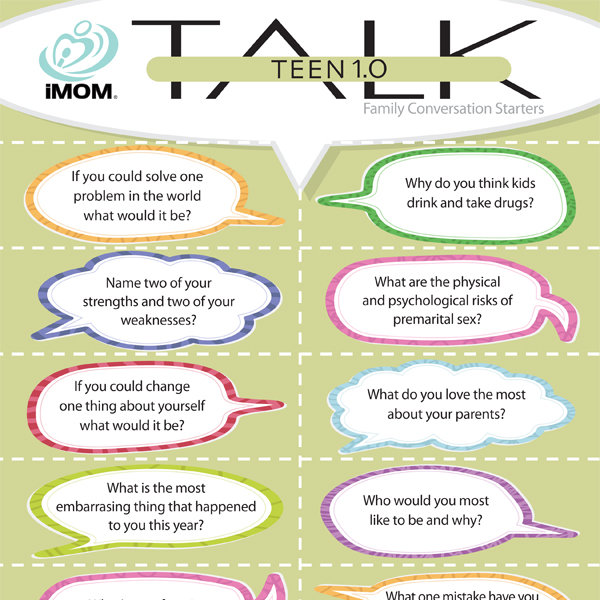 After each meeting, John made a prediction about the joint future of a particular couple and after a year checked whether he was right. In addition to making predictions, he made recommendations to study participants and could subsequently evaluate how effective they were. nine0003
After each meeting, John made a prediction about the joint future of a particular couple and after a year checked whether he was right. In addition to making predictions, he made recommendations to study participants and could subsequently evaluate how effective they were. nine0003
So all the conclusions and advice of Gottman are confirmed by many years of research and practice. This is its main feature.
The number of divorces in Russia is growing, and marital therapy is still one of the most difficult types of psychological assistance. Both professionals and specific families are in dire need of an effective method of working with family, and in particular with marital relations.
Project "Gottman.ru" , which is currently under development, is conceived, on the one hand, as a training center for certified specialists in the John Gottman method, who are able to effectively, professionally provide quality assistance. His other task is very practical - to help specific families.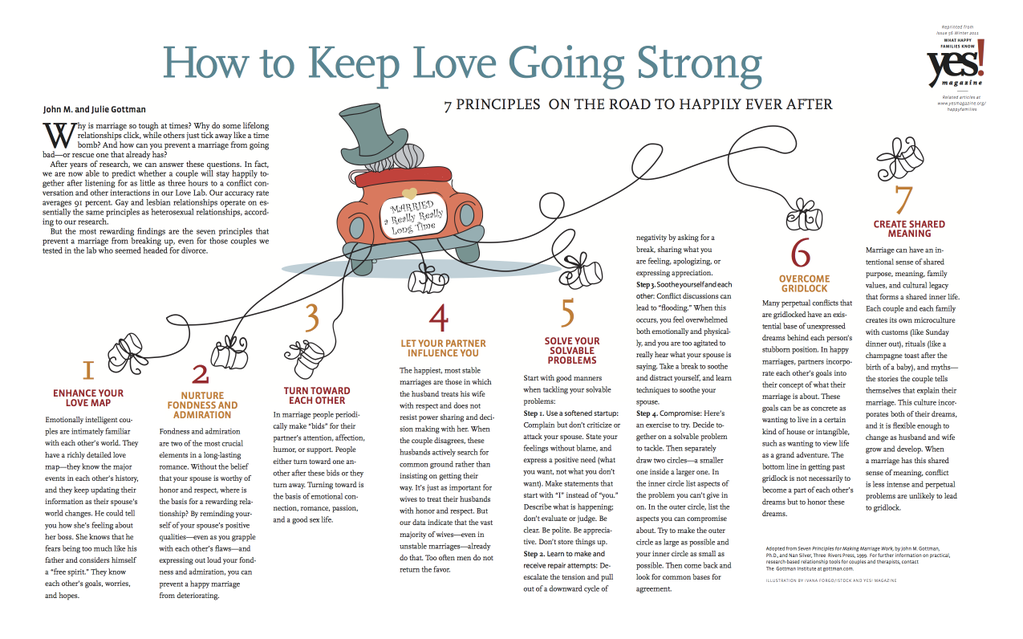 Strengthening emotional connection, marital "coaching", resolving conflicts in relationships, coping with crises in family life. I sincerely thank Boris Kholmyansky for his comprehensive support of this project. nine0003
Strengthening emotional connection, marital "coaching", resolving conflicts in relationships, coping with crises in family life. I sincerely thank Boris Kholmyansky for his comprehensive support of this project. nine0003
You are holding Gottman's main book The 7 Principles of a Happy Marriage . It was first published in America in 1999, has been translated into 10 languages of the world today and still remains a bestseller. This is a unique and at the same time very affordable way to get high-quality and effective help: learn how to maintain an emotional connection in a couple, resolve conflicts, respect and admire each other.
Life is fleeting, we are becoming more informational, technically progressive and savvy, but we are still not taught how to build relationships - neither at school nor at university. But at the same time, remember that love is not a bonus, not a pleasant addition to sex, relationships, life. Love is a basic human need. Make your Relationships, your Love, your Partner a priority. And this book will help you! nine0003
And this book will help you! nine0003
You can find other materials, articles, information about courses, counseling, trainings, training according to the method of Dr. John Gottman on the Russian-language website gottman.ru and on my Instagram page: https://www.instagram.com/profamily_42/
Julia Gottman, who gave a new meaning to the word "collaboration", and my main assistants: Sybil Carere, Sharon Fentiman and Katherine Swanson. They turned the work into something wonderful - it was like drinking coffee and eating cakes in an ordinary cafe. nine0003
John Gottman
To Arthur, my beloved friend.
Nan Silver
The situations discussed in this book are based on the research of John Gottman. In all cases, names and identifying information have been changed.
Chapter 1
Love "Behind the Glass"
How I "spy" on couples for years
A beautiful sunny morning in Seattle. Newlyweds Mark and Janice Gordin sit down to breakfast. A large Venetian window overlooks Lake Montlaine and the park. Athletes make morning runs, geese leisurely walk. Mark and Janice enjoy eating toasted toast and reading the Sunday papers. A little later, Mark will turn on the broadcast of the football game, while Janice will call her mother, who lives in St. Louis. nine0003
Newlyweds Mark and Janice Gordin sit down to breakfast. A large Venetian window overlooks Lake Montlaine and the park. Athletes make morning runs, geese leisurely walk. Mark and Janice enjoy eating toasted toast and reading the Sunday papers. A little later, Mark will turn on the broadcast of the football game, while Janice will call her mother, who lives in St. Louis. nine0003
Everything seems mundane enough in this one-room apartment until you notice three video cameras on the wall, small microphones on the newlyweds' collars, and [1] Holter monitors, -stuck on the chest. Mark and Janice's family nest isn't really an apartment at all. This is the laboratory at the University of Washington Seattle, where for 16 years I led pioneering research into marriage and divorce.
Mark and Janice, participants in one such study (and 49other randomly selected couples) spent time in our apartment, jokingly called the "Laboratory of Love". They were instructed to act as naturally as possible, despite being watched by a team of scientists through a one-way mirror in the kitchen, cameras recording their every word and facial expressions, and sensors monitoring signs of stress or relaxation, such as heart rate. (To protect delicate moments of private life from prying eyes, the couples were observed only from nine in the morning until nine at night, and never in the bathroom.)
(To protect delicate moments of private life from prying eyes, the couples were observed only from nine in the morning until nine at night, and never in the bathroom.)
The apartment is equipped with a sofa bed, fully equipped kitchen, telephone, TV. Couples bring groceries, newspapers, laptops, embroidery, sports equipment and even pets—anything they might need to spend a "typical weekend" together.
I wanted to debunk our ideas about marriage - to finally answer the questions that people have puzzled over for so long.
Why is marriage sometimes strong no matter what?
Why do some relationships last a lifetime while others feel like a ticking time bomb?
Is it possible to save a marriage that has already cracked?
After years of research, I can finally answer these questions. What's more, I've learned to predict whether couples will be happy or go their separate ways by observing a couple in our "love lab" for just five minutes! The accuracy of my forecast is 91 percent.
These predictions are not based on my intuition or preconceived notions about what marriage "should" be, but on the results of my research.
It is possible that at first you will perceive my words as just another fashionable theory and even dismiss them with annoyance. It's easier to be a cynic when someone says they've figured out the secret to successful marriages and can show you how to save your family. Many consider themselves experts in matters of love and are happy to express their opinion on how to create a perfect union. nine0003
But here it is, the key word - "opinion". Prior to the findings of my research, point of view was all that any person trying to help married couples could say. Including a qualified, talented and well-trained marriage counselor.
Usually the help of a specialist is based on professional training, experience, intuition, knowledge of family history, maybe even on religious beliefs. But not on hard scientific data. Since, until now, there has been no exact scientific data on why some marriages are successful, others are not. nine0003
nine0003
EQ marriages
The answer to the question "What is the basis of a lasting marriage?" surprisingly simple. Happy couples are not smarter, richer, or more insightful. However, their negative thoughts and feelings about each other (which all couples have without exception) never take precedence over positive ones. This is what I call emotional-intellectual marriage .
Recently, it has been recognized that the emotional intelligence (EQ) of a child is more important for his future success than IQ. The more different emotions a child experiences and the more able to empathize with other people, the more successful he will become. The same statement is true for marital relations. If they are emotional are intelligent , they will be able to understand and respect each other and their marriage - and therefore live happily.
Emotional intelligence can be developed not only in children, but also in adults. And it can save a couple from divorce.
Sad statistics
Divorce statistics are depressing. The probability that the first marriage will end in divorce before the couple's fortieth birthday is 67 percent. Half of all divorces happen in the first seven months. The divorce rate in second marriages is 10 percent higher than in first ones. nine0003
The likelihood of divorce is so high that it makes sense for all couples - even those who are currently satisfied with their relationship - to make additional efforts to maintain their strength.
One of the saddest reasons why a marriage fails is that neither spouse recognizes its value until it's too late. Only after the documents are signed, the furniture is divided and separate apartments are rented, the ex-husband and wife realize how much they have lost by abandoning each other. nine0003
Too often a successful marriage is taken for granted. And he is not given the nourishment and respect he deserves and desperately needs.
Some may think that divorce is not such a tragedy. That it is quite modern and even natural. However, there is plenty of evidence of how painful a breakup can be for everyone involved.
An unhappy marriage, like divorce, negatively affects the health of spouses. It can increase the likelihood of disease by a third and even shorten life by an average of four years. nine0003
In an unhappy marriage, people experience chronic physical and emotional stress. It tires the body and mind and eventually manifests itself in the form of ailments. Most often - in high blood pressure and heart disease. Psychological abnormalities include anxiety, depression, violence, psychosis, murder, suicide, alcohol or drug abuse.
It is not surprising that such ailments are much less common in happy couples. In addition, they are more inclined to take care of their health: each of the spouses makes sure that his spouse regularly undergoes medical examinations, takes medicine, eats healthy food, and so on. nine0003
nine0003
When a marriage breaks down, not only the husband and wife suffer, but also the children. Studies have shown that 63 preschoolers raised in families where there was hostility between spouses had chronically elevated levels of stress hormones compared to other children surveyed. We don't know how long-term exposure to such stress will affect their health. However, we know for sure that this was reflected in their behavior .
We followed their development up to 15 years. Compared to others, these teenagers were much more likely to skip school, study worse, suffer more from depression, peer rejection, behavioral problems - especially aggression. nine0003
An important conclusion from all this is that it is foolish to stay in a bad marriage for the sake of children . It is obviously harmful to raise children in a house where the parents hate each other. An amicable divorce is better than a war-like marriage. But, unfortunately, divorces rarely go amicably. Mutual hostility of former spouses usually continues after the breakup. For this reason, children of divorced parents often experience the same problems as children who are caught in the crossfire in an unhappy family. nine0003
Mutual hostility of former spouses usually continues after the breakup. For this reason, children of divorced parents often experience the same problems as children who are caught in the crossfire in an unhappy family. nine0003
700 test couples
There is shockingly little scientific research on how to keep a marriage strong and happy. When I took up these questions in 1972, probably all the "good" scientific data would fit in a small folder. By "good" I mean data that is collected using scientific methods as accurate as those used in medicine.
For example, many studies on marital happiness have been conducted exclusively by surveying husbands and wives. This approach is called the self-report method and, although it has the right to exist, it is rather limited. How do you know if a wife is happy, even if she checks the box “happy” on some questionnaire? It is not uncommon for a woman who is physically abused to rate her marital satisfaction highly. She talks about her torment only if she feels safe and is interviewed in private. nine0003
nine0003
My colleagues and I have supplemented the traditional methods of studying marriage with innovative, more comprehensive ones. We have observed 700 couples in seven different rooms. These are not only newlyweds, but also couples with experience. We observed spouses who have recently become parents, and those whose children have already grown up.
I asked couples about their family history, their philosophy of marriage, how they view their parents' marriages. I recorded on video how they tell each other about the past day, argue or talk on pleasant topics. And to get physiological data (whether they are stressed or relaxed), I constantly measured their heart rate, sweating, blood pressure and immune function. nine0003
I met each couple at least once a year to see how their relationship was progressing.
Until now, my colleagues and I are the only ones who conduct such a comprehensive and large-scale observation and analysis of married couples. Our data reveals the anatomy of marriage . The results of these studies, and not my personal opinion, form the basis of the Seven Principles for a Happy Marriage, which I will discuss in later chapters.
The results of these studies, and not my personal opinion, form the basis of the Seven Principles for a Happy Marriage, which I will discuss in later chapters.
Our approach is very different from the standard approach offered by most family therapists. Indeed, as a result of my research, I had to discard some of the traditional views on marriage and divorce. nine0003
Family therapy fails
If you have had or have relationship problems, you probably received a lot of advice. It sometimes seems as if everyone who has ever been married or knows someone who has been married thinks they know the secrets of eternal love.
However, most points of view, whether they are voiced by a psychologist on TV or a wise manicurist in a beauty salon, are wrong. Many such theories, even those that were initially supported by talented theorists, have long been debunked - or deserve to be. But they have taken such a strong place in popular culture that you would never know about this fact. nine0003
nine0003
The biggest myth - that communication, or rather, the ability to resolve conflicts, is a direct path to a stable and happy marriage. Whatever the theory behind the family therapist, whether you prefer short-term, long-term therapy or a three-minute radio consultation with a local psychiatrist, the advice you will be given will be the same: learn to communicate.
It is easy to understand why this approach is so popular. When people are in conflict (this may be a brief spat; a competition to shout over whom; or an icy silence), everyone hopes to win the battle. A person is so focused on resentment and the desire to prove his case that normal communication becomes almost impossible. Therefore, it seems logical that listening to each other's points of view calmly and lovingly will help to find a compromise and restore balance. nine0003
The most common technique recommended by most family therapists for conflict resolution is called active listening .
Let's say Judy is upset that Bob often works late. The therapist asks Judy to state her grievances as "I" statements that prioritize her feelings rather than blaming Bob. Judy will say "I feel lonely and depressed when I'm at home alone with the kids night after night while you work late" rather than "It's so selfish of you to always work late and expect me to take care of myself." children." nine0003
Bob is then asked to paraphrase Judy's statement and make sure he understands it correctly. (This shows that he was actively listening.) In addition, he is asked to respond to his wife's feelings - to let her know that he considers them logical, that he respects and empathizes with her, even if he does not share her point of view. He could say, "You must have a hard time babysitting when I'm late at work." Bob is asked not to evaluate, not to argue, to prove his point, and not to make excuses. “I can hear you” is a buzzword for active listening. Thanks to Bill Clinton, the expression "I feel your pain" is now quite common.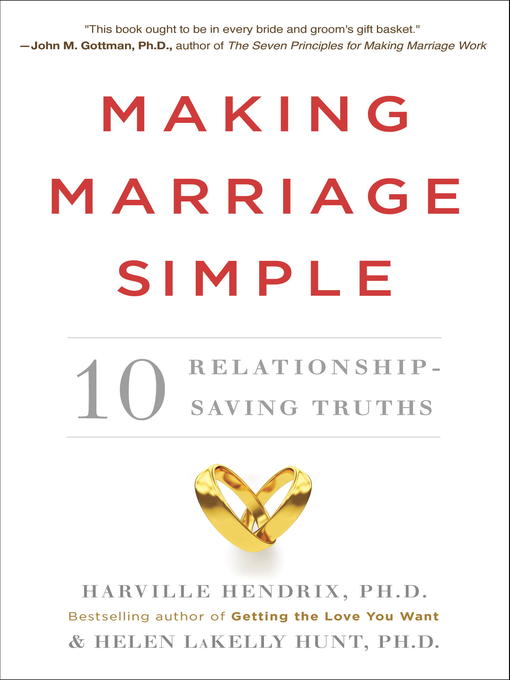 nine0003
nine0003
Where did this approach come from? The pioneers of family therapy brought it from the techniques of the famous psychotherapist Carl Rogers. Rogers' individual therapy flourished in the 1960s and is still practiced to varying degrees. His approach is to accept, without judgment, all the feelings and thoughts that the patient expresses.
For example, if the patient states, “I just hate my wife, she is such a bore,” the therapist nods and says something like, “I can hear you. You said your wife is nagging at you and you hate it." The goal is to create an environment of empathy so that the patient can trust the therapist by calmly examining their own thoughts and emotions. nine0003
Since ideally marriage is also a relationship in which people are not afraid to be themselves, it seems to make sense to train couples to practice this kind of unconditional acceptance. Of course, it is easier to resolve the conflict if everyone expresses sympathy for the point of view of the spouse.
The problem is that it's not that efficient. Bob may do his best to listen carefully to Judy's complaints. Only he is not a therapist who listens to the patient's complaints about someone else. Hiding behind all these "I" statements, the wife showers accusations its .
There are people who can generously endure such criticism - perhaps the Dalai Lama can do it. But it is unlikely that you or your spouse would be married to such a person. (Even in Rogers' therapy, when a patient complains about the therapist, the therapist switches from empathy to other psychological approaches.) Active listening invites the couple to do Olympic-level emotional gymnastics while their relationship is barely able to stir.
If you think acknowledgment and active listening will make conflict resolution between you and your spouse easier, please apply. There are circumstances where this can definitely be useful. Active listening and acknowledgment may make your encounters less violent or less frequent, but only they won't save your marriage.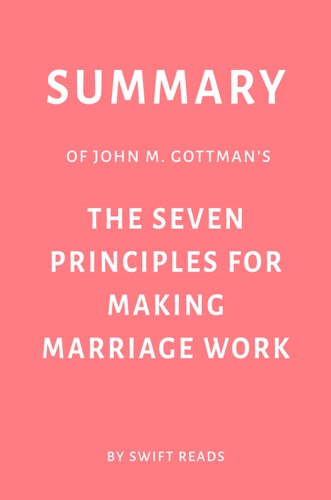
The Seven Principles for a Happy Marriage - ET
What exactly do people mean when they say they are happily married? Researchers believe that this is more than a feeling of happiness or satisfaction; it includes the amount of conflict-free marital interaction.
What makes marriage work is surprisingly simple. Happy couples are not smarter, richer, or more psychologically perceptive than others. But in their daily lives, they have learned not to let negative thoughts and feelings for each other overwhelm their positivity. These couples have created what I call an emotionally intelligent marriage. They excluded from their relationship the principle "You - to me, I - to you." nine0003
Happy spouses very often ask one simple question, how can they make things work for their couple, to their mutual benefit. This includes respecting the opinion of the other, modulating one's tone of voice, and refraining from yelling or blaming; this includes creative listening and looking for the real meaning behind every word that is spoken.
This also includes granting the partner a certain degree of personal privacy, such as not viewing each other's e-mail unless by mutual consent; this includes giving a tired husband home from work a few minutes of silence to "breathe" before "dumping" his problems on him; this includes punctuality and common courtesy, such as being ready to leave when agreed, always saying “please”, “thank you”, and being able to smile sincerely. nine0003
It also means that one partner does not expect the other to "make things right" in their couple, realizing that harmony requires the efforts of both. The presence of signs of emotional intelligence is a good indicator that a marriage can turn out well. Of course, it is best to discuss all this before marriage and reach a common understanding on certain topics.
The more emotionally developed a couple is, the better they are able to understand, respect and support each other and their marriage, and the more likely they are to truly “live happily ever after,” as we are promised in fairy tales.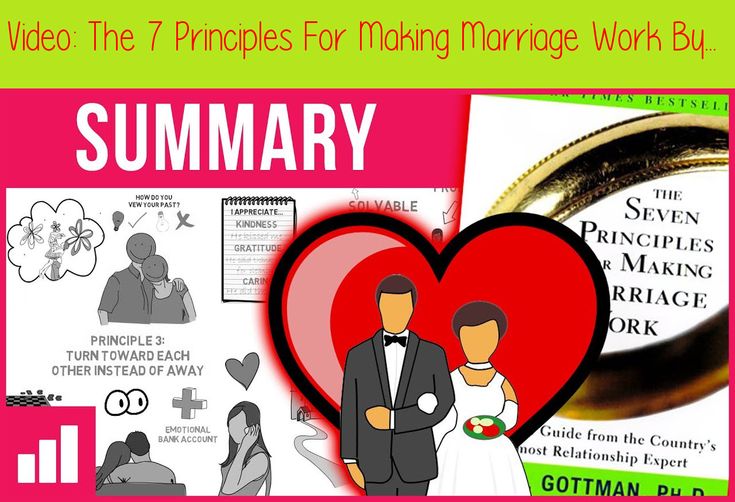 In the same way that parents can teach their children emotional intelligence, couples can learn the same skill, potentially avoiding divorce later on. nine0003
In the same way that parents can teach their children emotional intelligence, couples can learn the same skill, potentially avoiding divorce later on. nine0003
So what is "happily married happily" really? Researchers say that this is a marriage based not only on a sense of happiness or satisfaction, but also on the absence of conflict.
There are simple steps you can take to keep your marriage alive and well. Tips abound, but the following reflects common sense in all cultures. They are taken from John Gottman's Seven Principles for a Happy Marriage, which is the result of over 20 years of research involving hundreds of couples. nine0003
1. Seek help as soon as possible
The average couple waits six years before seeking help for family problems. Half of all marriages that end do so in the first seven years. Unfortunately, the usual couple put up with misfortune for too long.
2. Control Yourself
Couples who avoid voicing every evil thought that comes into their mind when discussing sensitive topics are invariably the happiest.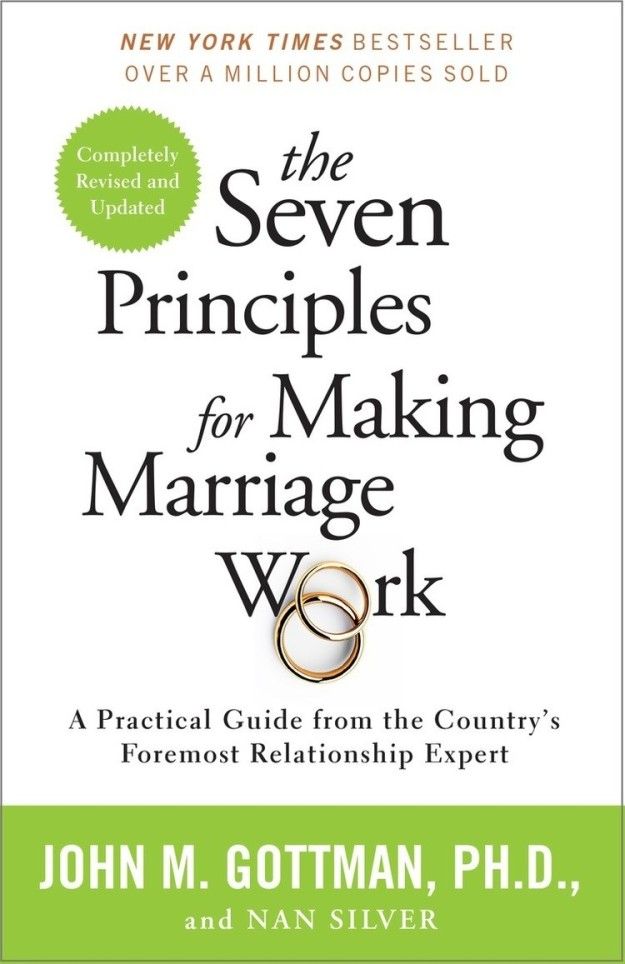 nine0003
nine0003
Couples who avoid voicing every evil thought that comes into their head when discussing sensitive topics are invariably the happiest. (Image: Soon Wee Meng via Dreamstime)
3. Be careful how you "start" the conversation
Arguments "start" first because the spouse sometimes escalates the conflict by making a sharp, angry, or upsetting remark in a confrontational tone.
4. The husband must accept the influence of his wife
Marriage is successful to the extent that the husband can accept the influence of his wife. If a woman says, for example: “Do you have to work tomorrow night? My mom is coming this weekend and I need your help to prepare." nine0093 The husband who replies: "My plans are set and I do not change them" - in a shaky marriage.
5. Make high demands on each other
Happy couples make high demands on each other, even as newlyweds. The most successful couples are those who refuse to accept abusive behavior from each other.